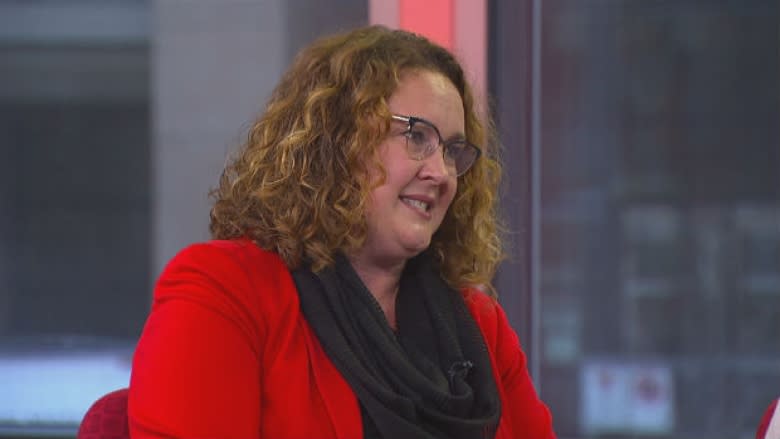'Didn't define him' says advocate who grew up with MS in the family
About 12,000 people in this province — more than the entire population of Prince Rupert — are living with multiple sclerosis or MS, but many suffer from invisible symptoms, so remain unnoticed.
A B.C. group is trying to change that by raising awareness about MS, which hits females triple the rate of males.
People with MS often face misunderstanding, because the neurological disease does not always present the same way.
"If you think of an electrical cord and the protective layer on the outside, it starts to break down in someone with MS,: said Tania Vrionis, President of the B.C. and Yukon Chapter of the Multiple Sclerosis Society of Canada.
That breakdown could result in what's known as "blips" where suddenly your sight goes for a short time but then returns. It could also mean a complete inability to walk one day.
Neurological Disease
Patients have good days and bad days and sometimes long stretches of one or the other without being able to predict when the disease will strike again.
This hits families hard in prime earning years, she said.
"It really impacts the entire support system around an individual."
Jacqui Cohen was part of her father's support system as she grew up.
He was diagnosed in his early 20s.
What stuck Cohen is how resilient her father was while living with the disease.
'It never defined my dad'
Cohen aid she was unaware her father had the disease until one day she noticed him walking "funny."
She made a comment and her brother admonished her for it because he knew what was going on.
Research is looking into why women are hit three times more than men.
A lot of the research being done is on genetics and the Women Against Multiple Sclerosis are honouring UBC Dr. Dessa Sadovnick,a professor of medical genetics, in neurology at the faculty of medicine.
Only 25 years ago little was understood about MS treatment.
Patients were told to go home and rest.
Now there are 14 approved therapies including adaptations in diet, exercise, and environmental factors that improve outcomes for those living with the disease.
Cohen, keynote speaker at the upcoming fundraising lunch Nov. 23 stresses the optimistic.
She said father accepted his fate and carried on with a smile on his face still going to work at their Army and Navy store and handing out hot dogs to customers.
"Obviously we want to find the cure but I just want to be uplifting and talk about how it was part of my father but didn't define him."
Watch Vrionis and Cohen in conversation with Gloria Macarenko of Our Vancouver.



